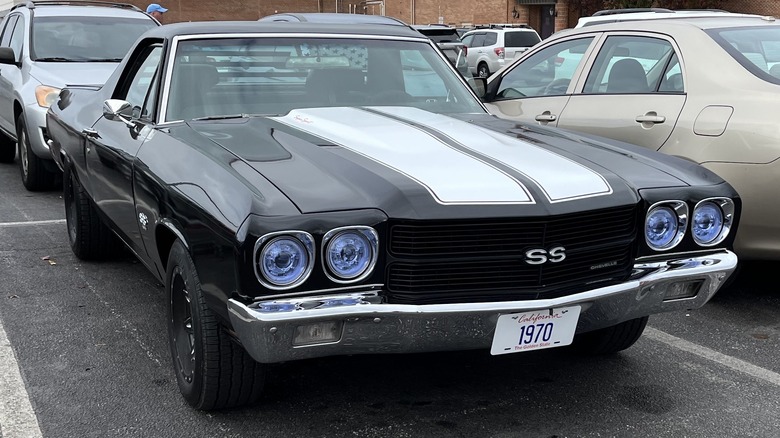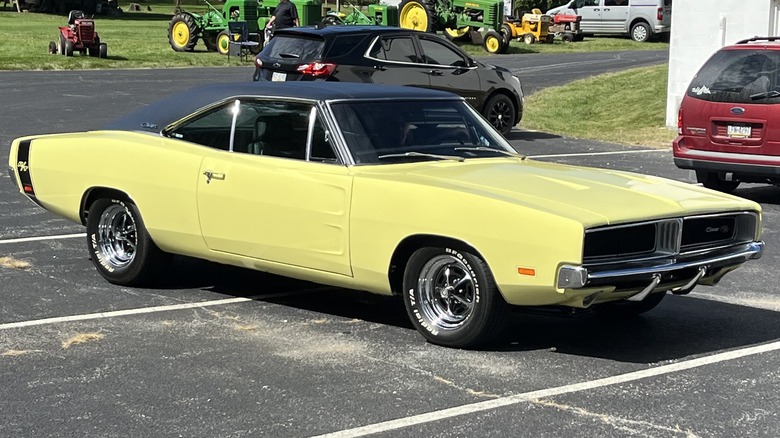Clone Cars And Tributes Explained: What You Should Know Before You Buy One
Buying a classic car, especially a hunk of American iron from the 1950s to the early 1970s is a double-edged sword. One on hand, you can own a rolling piece of American history. On the other hand, it will likely cost a good chunk of change for a well-sorted-out model in the specification you want, especially if it's a model with a big block V8 or one kitted out for track performance.
For example, a genuine 1967 Chevy Chevelle SS with a 396 cubic inch V8 rolled across the virtual auction block for $65,500 last month on Bring a Trailer. Similarly, a genuine 426 cubic inch HEMI V8 powered 1970 Plymouth 'Cuda sold for a thematically appropriate $180,426 last year. As with any collector item, originality is key. Most of the time, having an original engine and drivetrain will cause the price tag to go up.
Most people don't have that kind of money at their disposal to drop on a classic muscle car. To overcome this monetary obstacle, some have turned to buying or making "clone cars," "tributes," and a host of other names. But what should you know before turning the wrench to build your own or take to the classified ads to find one to buy?
Do your research
Clones and tributes, as the names imply, are not the "real deal" version of a car and can consist of changes ranging from modifying the badges to complete restorations that change everything about a vehicle to closely imitate the original.
To illustrate, someone may take a stock, base model 1969 Dodge Charger powered by a Slant-6 engine, update the badges to say "R/T," repaint it an aggressive era-correct shade of orange, and drop a 440 cubic inch V8 under the hood. The resulting car would be a "tribute" or "clone" of an authentic 1969 Dodge Charger R/T. It's not the original, but it's effectively the same thing. As long as the Vehicle Identification Number is not altered, and the seller is honest about the restoration, it's perfectly legal to buy/sell it. It will likely be a good deal cheaper than a real R/T.
Suppose you, the buyer, are ok with reproduction parts and not having 100% original factory options in the car. In that case, absolutely no real gearhead will be mad at you for driving around a classic that had some care put into it. There are, however, important caveats to clones. If it's a poorly done restoration, misrepresented in any way, or the owner lies about a car's provenance, that's a different story, and those cars should not be celebrated. As with all car purchases, ensure the seller is trustworthy, gather as much documentation as possible, and do as much research as possible.

